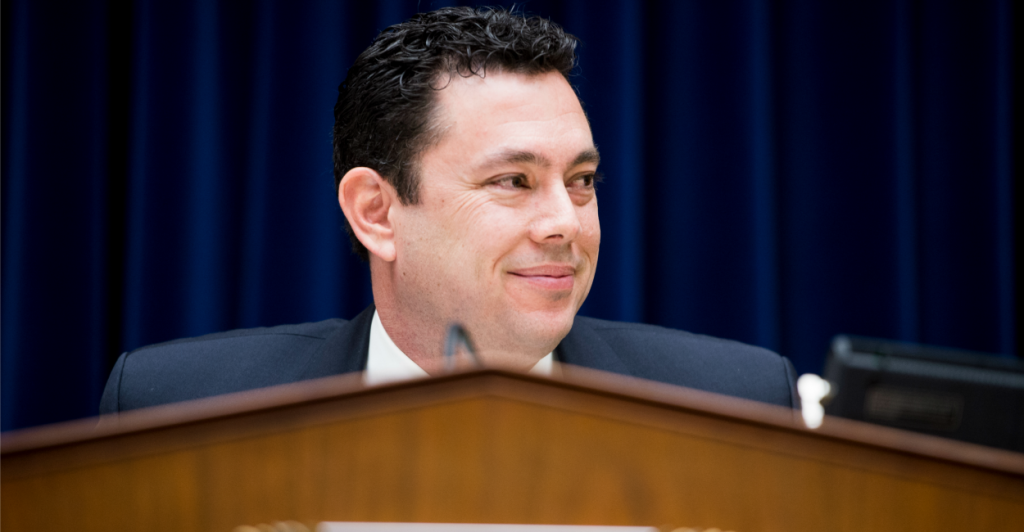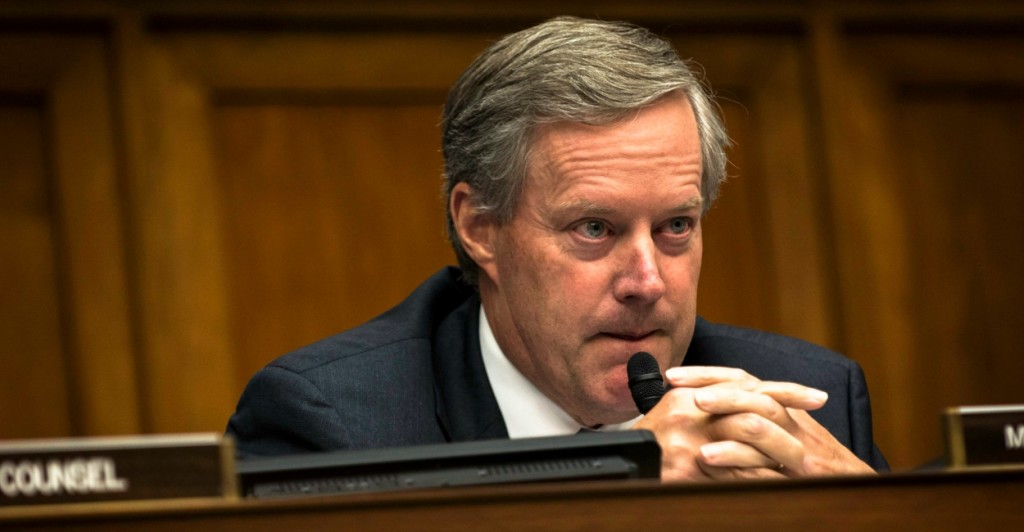With No Nominee of Their Own, House Conservatives Struggle Over Speaker Vote
Josh Siegel /
The same House conservatives who not so quietly helped push out Speaker John Boehner have been tight-lipped about whom they want to replace him.
Not enamored with the candidates before them, and without the clout to elevate one of their own, the 40 or so conservatives of the House Freedom Caucus nonetheless effectively have veto power over the speaker election.
“This is a historic opportunity to pick the speaker of the House,” said Rep. Tim Huelskamp, R-Kan., a Freedom Caucus member, in an interview with The Daily Signal. “Moving people up the leadership ladder is not going to happen. There is no clear path to victory for anyone to become speaker of the U.S. House.”
Mindful that their frustrated constituents may judge them harshly for promoting Majority Leader Kevin McCarthy to speaker, and hopeful, yet cautious, over new entrant Rep. Jason Chaffetz because he once punished a leading member of their team, conservatives are in a bit of a pickle.
“The problem for me and most of us is that we don’t see us on the floor voting for McCarthy,” said another House Freedom Caucus member, who wished not to be named.
“I think there are 40 or 50 members who will have a real struggle voting for him on the floor because back home, he is viewed as Boehner 2.0. Our constituents don’t think we better ourselves to vote for someone with the same approach and the same culture. That’s what we are going to have to overcome.”
On Monday night, Boehner, heeding conservative wishes, gave lawmakers a little more time to make a decision when he agreed to wait until Oct. 29 to hold a full House vote for the next speaker.
The elections for House majority leader and majority whip—the number two and three leadership positions—will come after the speaker vote, likely not until November.
The House Republican Conference will still choose its nominee for speaker this Thursday in a secret ballot, but that candidate has to secure a majority, or 218 votes, on the floor to win the position.
To become the nominee, a candidate just needs to win the majority of the Republican conference, but to become speaker he must get the majority of the chamber to back him.
“The House speaker is more important than any other possible race combined,” said John Fleming, a House Freedom Caucus founder from Louisiana, in an interview with The Daily Signal.
“The speaker has huge power—we want to be very deliberate in how we make that decision. Why not take a full month? I want to hear what he is going to do to empower individual members.”
McCarthy, R-Calif., who is expected to benefit from the extra time as he works to shore up support if he is anointed the nominee, will have his best chance to convince skeptical members at a conservative “audition” on Tuesday.
At the 90-minute “Conservative Group Forum” Tuesday night at Capitol Hill Club in Washington, D.C., McCarthy, Chaffetz, and long-shot speaker contender Daniel Webster, R-Fla., will each have the chance to individually win over the seemingly unwinnable conservative members.

House Oversight Chairman Jason Chaffetz is making a late run for speaker. (Photo: Bill Clark/CQ Roll Call/Newscom)
During the event, which is hosted by the House Tea Party Caucus, the Conservative Opportunity Society, the House Liberty Caucus, and the Freedom Caucus, the candidates will meet with the group separately, first delivering prepared remarks before taking questions.
“We are holding speaker interviews before the big group, so we can have some accountability,” said Huelskamp, who organized the event and belongs to all four conservative groups. “We are looking for specifics—not just assurances, but guarantees.”
So far, McCarthy has done his best to appease all bodies of the Republican conference.
In an email to fellow members when he launched his speaker bid, McCarthy, aiming to show he’s aware of the frustrations among Republicans, impressed conservatives with his call for unity. Freedom Caucus members credit him for his bottom-up leadership style and appreciate the effort he’s made to build relationships with them.
“Kevin has put out some nice words, but I want to hear that in person,” Huelskamp said.
Chaffetz, R-Utah, who entered the speaker race Sunday after vowing that McCarthy can’t obtain the 218 votes he needs, will also face scrutiny.
Though he is not a current member of leadership, Chaffetz chairs the powerful House Oversight and Government Reform Committee.
This summer, Chaffetz used his authority to strip Rep. Mark Meadows, a House Freedom Caucus founder from North Carolina, of his subcommittee chairmanship for voting against a procedural motion.
Chaffetz eventually returned Meadows his chairmanship.
“The only candidate not experienced in doling out punishment is Danny Webster,” said Huelskamp, hinting that McCarthy, as a member of leadership, played a role in the Meadows punishment.
“I will ask them, both Kevin and Jason, how do you undo the damage you did to people? Will you punish conservatives or fix the House? How will you treat people fairly?”
Most Freedom Caucus members are more forgiving of Chaffetz, viewing the Meadows incident as “water under the bridge,” according to a conservative aide.
“I think ultimately the story is how Jason handled that,” said Mick Mulvaney, a House Freedom Caucus founder, in an interview with The Daily Signal. “The end result is that he listened to members and did the right thing. I don’t hold anything against Jason. He handled it how you would want a leader to.”

Rep. Mark Meadows, a North Carolina Republican, temporarily lost his chairmanship of the Government Operations Subcommittee after voting against a procedural rule. (Photo: James Lawler Duggan/Reuters/Newscom)
Indeed, conservatives say they are less interested in asking Chaffetz about the Meadows situation than learning how he would handle future disagreements.
For the House Freedom Caucus, it all comes down to “process.”
Ever since Boehner announced his resignation Sept. 25, House Freedom Caucus members, led by Chairman Jim Jordan of Ohio, have imparted a consistent message.
Jordan, who has denied requests from Freedom Caucus members to run for speaker himself, wants members to unite as a bloc behind a candidate, rather than peel off separately.
He also wants members less focused on who the speaker will be—and more on how that person will lead a more inclusive governing process.
“I don’t care about personality—who the speaker is,” Mulvaney, R-S.C., said. “I care about how that person will govern. So my questions will be the same for all three candidates. Who will allow us to work to work together, allow us in on decision-making and listen to conservative concerns, and how will they propose to do that?”
It may not be what their constituents care about, but process matters, conservatives say.
“It’s really boring for folks back home, a lot of this is inside baseball, but if I talk to members, who sits on Steering Committees is a big deal,” Mulvaney said.
“There is a reason the system is broken and not just because we elect the wrong people sometimes. The structure is broken. The process is broken.”
Still, some members know that the average American will care about the bottom line—whom they elect speaker of the House.
“Our constituents don’t necessarily see Chaffetz or Dan Webster as they do McCarthy,” said the House Freedom Caucus member who wished to be unnamed. “That’s the problem many of us will have. We got beat up for voting for Boehner before. There are a lot of members who can get primaried and not walk the same plank again. That’s why someone who is not in the power structure now, but someone liked by moderates and conservatives, may be a better choice and that’s why a lot of us have interest in what Jason has to say.”
Whomever conservatives elect to support, most Freedom Caucus members hope the pick is unanimous. And if the best choice is McCarthy, they say, conservatives should stick together, even if it risks blowback.
“Listen, I have some faith in the House Freedom Caucus,” Mulvaney said.
“We have earned that faith with folks back home. If a lot of people vote for McCarthy because he is the best for conservatives, I sure hope the people back home respect that. The proof will be in the pudding. We have big issues coming up. It won’t take long to find out who was right.”
